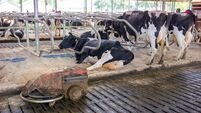Farm View: Irish plant-based sector presents opportunity for growers

The €9m Smart Protein project looks at how to manufacture cost-effective (and resource-efficient) EU-produced plant proteins from sources such as chickpeas, lentils, quinoa, fava beans, yeast, fungi, and byproducts from the pasta, bread, and beer industries.
With plant-based food sales in Europe estimated at €3.6bn in 2020, delegates at a recent Teagasc conference got a timely update on Irish-based participation in this increasingly lucrative sector.
They heard that Germany has the highest plant-based sales, followed by the UK. The Nestlé company alone sold €780m of vegetarian or plant-based foods in 2021, according to speakers at the conference.












